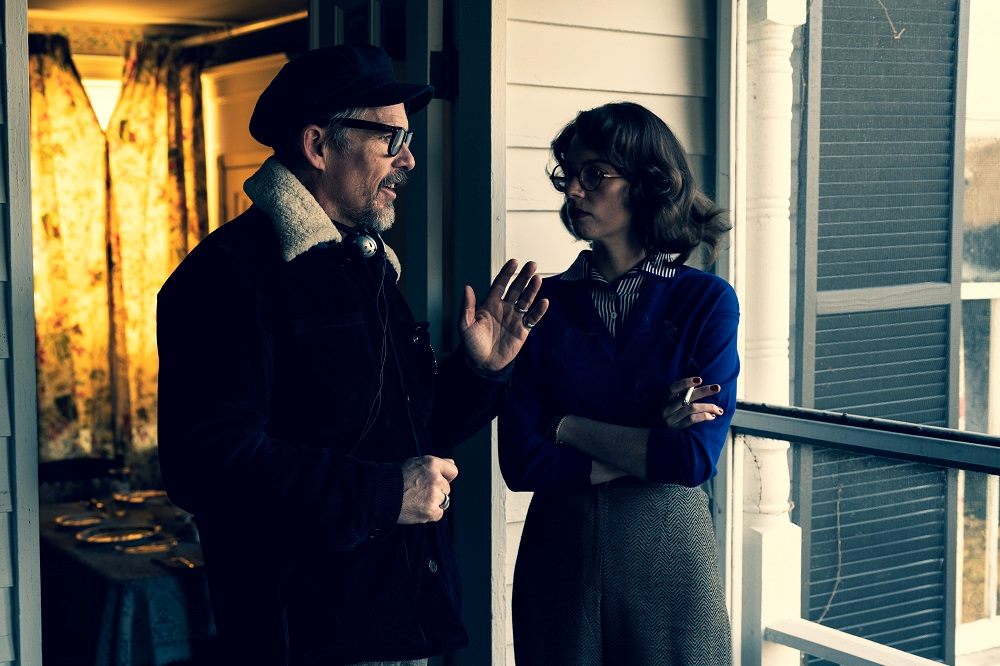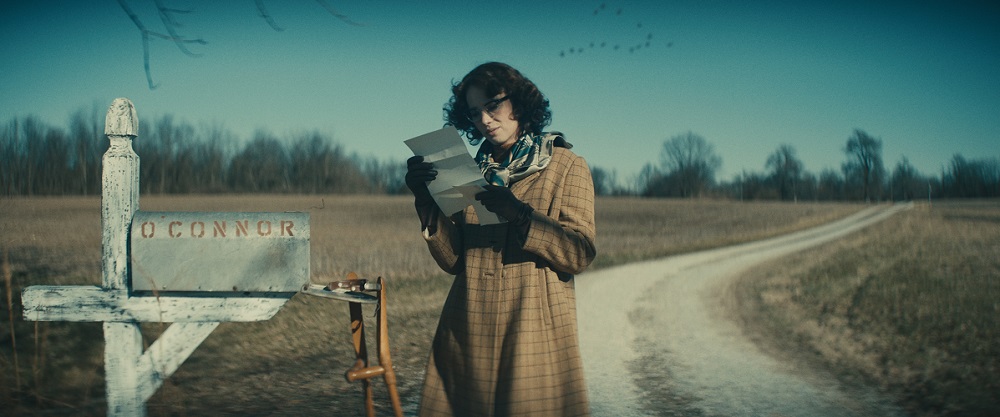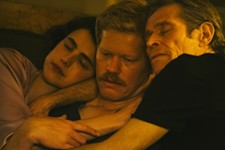Ethan Hawke and the Inner Life of Flannery O’Connor in Wildcat
Finding the drama of an author who laughed at her own biography
By Richard Whittaker, 2:03PM, Wed. May 29, 2024

Who says there’s no such thing as nepotism in Hollywood? After all, there’s no way that Ethan Hawke would have got the gig directing Wildcat if he wasn’t the star's father.
In many ways, Wildcat (which opens at AFS Cinema this weekend) seems like the perfect project for the star of the Before trilogy and The Black Phone as a director. His last three outings behind the camera have all been about artists and what drives them. His 2015 documentary Seymour: An Introduction explored the world of pianist Seymour Bernstein, and he stayed on the musical track with his biopic of Austin’s own duct tape messiah, Blaze Foley, called simply Blaze. He then followed that up with The Last Movie Stars, his adoring glide through the romantic and creative partnership of Paul Newman and Joanne Woodward. So it seemed natural for him to pick the biopic of author Flannery O’Connor for his latest film. Except he didn’t pick it. His daughter, Maya Hawke, was the one that brought the project to him. “It’s all Maya,” he said.
In this splendid isolation, she finally found literary success, completing her debut novel, Wise Blood, in the year of her diagnosis and her second, The Violent Bear It Away, eight years later. She also became a prolific creator of short stories, collected in A Good Man Is Hard to Find (1953) and the posthumously published Everything That Rises Must Converge (1965).
There was a kinship in her stories to the kinds of films that Ethan showed to Maya as she was growing up, the films of Gene Hackman, Dustin Hoffman, Robert De Niro, and Denzel Washington. “I’m showing her all these movies where men get to play really complicated, unlikable people, but you kind of admire them for their passion and sense of self.” That stood in stark contrast to the kind of roles Maya was getting offered after her star-making turn as the sardonic Robin in Stranger Things. “Every part that comes to a young woman is trying to be nice and cute and have people like you, and she really wanted to try to play a really complex human being that she had a kind of empathy for.”
For Ethan, the story of “a dying young woman’s relationship to God” is a throwback, as neither Hollywood nor the broader culture is producing “the kind of revelatory and self-scouring that was happening when I was falling in love with movies.”However, Maya got the rights to O’Connor’s life story, “and then she approached me about the job and asked, ‘Do you think you can write a script about Flannery?’ I said, ‘I could, but it’ll be batshit crazy.’”
His script is neither a complete overview of O’Connor’s life nor an examination of her greatest literary successes. Instead, Wildcat focuses on the darkest era of her life, the moment when all her dreams were dashed. For Ethan, it was the story that made most immediate sense. “Maya was 24 when she was coming at me with this idea, and one quick glance at Wikipedia, what was Flannery O’Connor doing when she was 24? Oh, she was diagnosed to die.” Suddenly, this talented young woman, “desperate to get out of the Jim Crow South,” on the cusp of success, surrounded by writers who respected her, with advocates like Pulitzer-winning poet Robert Lowell, suddenly was “forced to be at home with her mother for the next 15 years of her life.” It was the only moment in her story that had real drama: As Ethan noted, “She herself said, ‘I’ll never have a biographer, because I never did anything except go to church, write, and feed the chickens.’”
Yet this allowed Ethan to center on a more meaningful subject matter for him: “The life of the mind, and that’s what I think is most interesting about her, is this weird integration between imagination, faith, and reality and how a person managed to live an incredibly full and powerful life from the privacy of her own room.”
In Wildcat, Ethan draws upon two major sources to explore that inner life. First, her short stories, recreated with Maya as O’Connor playing the role of the character who seems closest to the author’s intent or viewpoint, whether it be the protagonist, the narrator, or a minor background character. Hawke compared their juxtaposition against the background of her life as like the tails of the peacocks that she so adored. “Each feather is interesting but really only has meaning as part of this cosmic selection, and each one of these characters is an aspect of the self.”
There was another library beyond the fiction, that of her letters that showcased “her wit and her sense of humor and her grouchiness,” and the essays, reviews, and lectures published posthumously as Mystery and Manners: Occasional Prose. Then there was the most direct look into O’Connor’s view of herself: her prayer journal. A Sterling notebook penned during her time at the University of Iowa, it contained her ruminations on her life, art, and her relationship with God. “That was the key to unlock her mind and get inside her head, and that’s where I wanted to be for the movie.”
Wildcat screens at AFS Cinema May 30-June 6. Ethan Hawke will be in attendance for a post-screening Q&A with Richard Linklater for the May 30-31 screenings. Read film review.
A note to readers: Bold and uncensored, The Austin Chronicle has been Austin’s independent news source for over 40 years, expressing the community’s political and environmental concerns and supporting its active cultural scene. Now more than ever, we need your support to continue supplying Austin with independent, free press. If real news is important to you, please consider making a donation of $5, $10 or whatever you can afford, to help keep our journalism on stands.
June 27, 2024
June 28, 2024
Ethan Hawke, Wildcat, Maya Hawke, Flannery O'Connor, AFS Cinema









